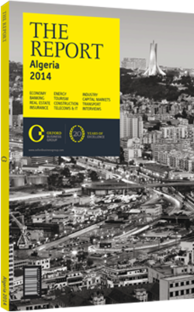OBG talks to Hocine Mansour Metidji, CEO, Group Metidji

Interview: Mansour Metidji
What is being done to improve crop yields?
MANSOUR METIDJI: The first push to restructure and improve yields came through the application of two laws: Law No. 08-16 of August 3, 2008, which determines the allocation of agricultural land, and Law No. 10-03 of August 15, 2010, which lays down the terms of use for state-owned agricultural land. Through these reforms, the government has ensured that any such land that is operated by collectives or individuals benefits from a more modern management system, where allocations are based on concessions and concessionaires are allowed to access loans and modernise their operations. The idea is that farming operations will switch from a renter’s logic to one better oriented towards economic profitability.
The second push to improve yields is through better integration of local value addition in the grains segment and consolidation of the national value chain by bringing all stakeholders together. The main objective of this strategy is to allow farmers to better incorporate more modern and technical processes to increase production and improve quality – particularly of wheat – thereby reducing costs and helping Algeria gradually achieve self-sufficiency.
The next step, to complete the sector’s restructuring – especially for the cereals segment – is to deepen collaborative involvement in the sector. This means working with everyone from seed suppliers and equipment providers to universities, research centres, banks and foreign investors to ensure that stakeholders throughout the value chain are able to share the funds, technology, equipment and know-how that are necessary to strengthen output.
Overall, there is a need to attract new investors, both at home, such as research and development and financial institutions, and from abroad, such as suppliers and advisory providers. To ensure a win-win situation for both foreign investors and the local market, joint ventures in particular offer significant opportunities. Algeria’s potential lies not only in its domestic market but also in its position as a northern gateway to sub-Saharan Africa. This means that, besides the opportunities for partnerships to modernise farming equipment or expand production in the Algerian market, there is scope to tap much larger markets.
What measures might help reduce food imports?
METIDJI: New production that is intended as import substitution should be targeted mainly to reduce the country’s food bill, and the authorities have identified categories for such potential replacements, mostly in cereals, animal feed, milk, meat and fish. In terms of animal products (milk and meat) much progress has been achieved, particularly for imports of high-yielding dairy breeds. Unfortunately, these have not yet yielded the expected results and will need further help from a targeted policy to increase the development of fodder crops. Experts estimate that distributing 250,000 ha of irrigated land, combined with appropriate technical support, could bring production of fodder in line with national needs.
Which segments offer the strongest potential for domestic value addition?
METIDJI: Agribusiness in Algeria caters mainly to domestic market trends and consumer demand, and the segment is already well developed. Stores are filled with good and even premium quality products, manufactured to international standards.
However, because the market is becoming increasingly competitive, Algerian agribusiness is engaging in a process of diversification and differentiation both to maintain its domestic market share and to expand into new international markets. Some efforts have been made in the areas of tomato and date production, for example, that forecast promising success. Though we are still early in the process, further initiatives in downstream activity will probably materialise in the south, where soil and irrigation conditions are fairly favourable for growing grain and fodder.
You have reached the limit of premium articles you can view for free.
Choose from the options below to purchase print or digital editions of our Reports. You can also purchase a website subscription giving you unlimited access to all of our Reports online for 12 months.
If you have already purchased this Report or have a website subscription, please login to continue.

